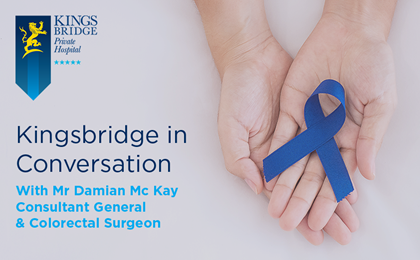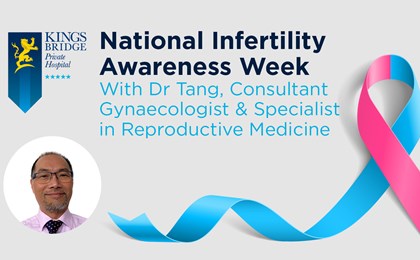Kingsbridge Help & Support
A credit or debit card is necessary to secure your booking. The card will be saved as your default payment method. You'll receive notifications regarding any outstanding balances. For details on the information we collect and process, while providing your healthcare, please refer to our privacy policy. By using this service, you consent to our privacy policy.
Continue to Kingsbridge BookingKingsbridge Help & Support
For enquires on post operative support, cancellations, test results and payment
Click for HELPSearch
Select Location
-
Treatments & Surgeries
- Back
-
Most Common Clinics
- ACL Knee Reconstruction
- ADHD Assessment Clinic
- Autism Assessment Clinic
- Carpal Tunnel Syndrome
- Cataract Surgery
- Chronic Pain Clinic
- Dermatology & Skin Clinics
- ENT Clinic
- Gallbladder Removal
- Haemorrhoid Clinic
- Hernia Repair
- Hip Replacement Surgery
- Knee Arthroscopy
- Knee Replacement Surgery
- Laser Eye Surgery
- Minor Injuries Clinic
- MRI, CT & Ultrasound Scans
- Pain Clinic
- Pregnancy Clinic
- Private GP Clinics
- Scope Clinic
- Urology Clinics
- Varicose Veins Removal
- Back
-
Bones & Joints
- ACL Knee Reconstruction
- Ankle Arthroscopy
- Ankle Fusion
- Ankle Stabilisation
- Back & Spine Surgery
- Elbow & Shoulder Surgery
- Foot & Ankle Surgery
- Hand and Wrist Surgery
- Hip Replacement Surgery
- Hip & Knee Replacement - Robot Assisted
- Knee Arthroscopy
- Knee Replacement
- Rotator Cuff Repair
- Shoulder Joint Replacement
- Back
- Cancer Services
- Chest, Heart & Lungs
-
Cosmetic & Plastic Surgery
- Abdominal Surgery
- Blepharoplasty Eyelid Surgery
- Breast Enlargement & Implants
- Breast Lift Surgery
- Breast Reduction
- Cosmetic Treatments
- Male Breast Reduction
- Brow Lift
- Ear Reshaping Surgery
- Earlobe Repair Surgery
- Facelift & Necklift
- Labiaplasty - Labial Reduction
- Liposuction
- Liposuction (Vaser)
- Nose Reconstruction
- Tummy Tuck
- Vaginal Repair
- Vaginoplasty & Vaginal Tightening
- Varicose Veins Removal
- Back
- Eye Surgery Clinic
- Gastro & Scope Clinics
- GP Clinics
- Gynaecology
- MRI, CT and Ultrasound Scans
- Paediatric Clinics
- Urology & Nephrology
- Women's Health Clinics
- Additional Clinics
- All Treatments & Surgeries
- Consultants
- Patient Information
- Cross-Border Healthcare
- Payment & Pricing
- Book & Enquire
- Most Common Clinics
- Bones & Joints
- Cancer Services
- Chest, Heart & Lungs
- Cosmetic & Plastic Surgery
- Eye Surgery Clinic
- Gastro & Scope Clinics
- GP Clinics
- Gynaecology
- MRI, CT and Ultrasound Scans
- Paediatric Clinics
- Urology & Nephrology
- Women's Health Clinics
- Additional Clinics
-
All Treatments & Surgeries
Most Common Clinics
Bones & Joints
Cancer Services
Chest, Heart & Lungs
Cosmetic & Plastic Surgery
Eye Surgery Clinic
Gastro & Scope Clinics
GP Clinics
Gynaecology
MRI, CT and Ultrasound Scans
Paediatric Clinics
Urology & Nephrology
Women's Health Clinics
Additional Clinics
Consultants
Patient Information
Cross-Border Healthcare
Skip The Waiting List

Apply Today
Surgery Costs Remibursed For Your Cross Border Treatment
Payment & Pricing
Need To Pay A Bill?
Pay Your Bill
To pay an invoice for treatment
Book & Enquire
-
Treatments & Surgeries
- Back
- Most Common Clinics
- Bones & Joints
- Cancer Services
- Chest, Heart & Lungs
- Cosmetic & Plastic Surgery
- Eye Surgery Clinic
- Gastro Clinic
- Private GP Services
- Gynaecology
- MRI Scan and Ultrasound Scanning
- Paediatric Clinics - Babies, Children and Adolescents
- Urology & Nephrology
- Women's Health Hub
- Additional Clinics
- All Treatments & Surgeries
- Consultants
- Patient Information
- Cross-Border Healthcare
- Payment & Pricing
- Book & Enquire
Call Us Today
Kingsbridge Hospital
UK +4428 90 667 878 ROI 01 968 2000
Sligo Hospital
ROI 071 916 2649
Cross Border Health Team
ROI 01 968 2000








